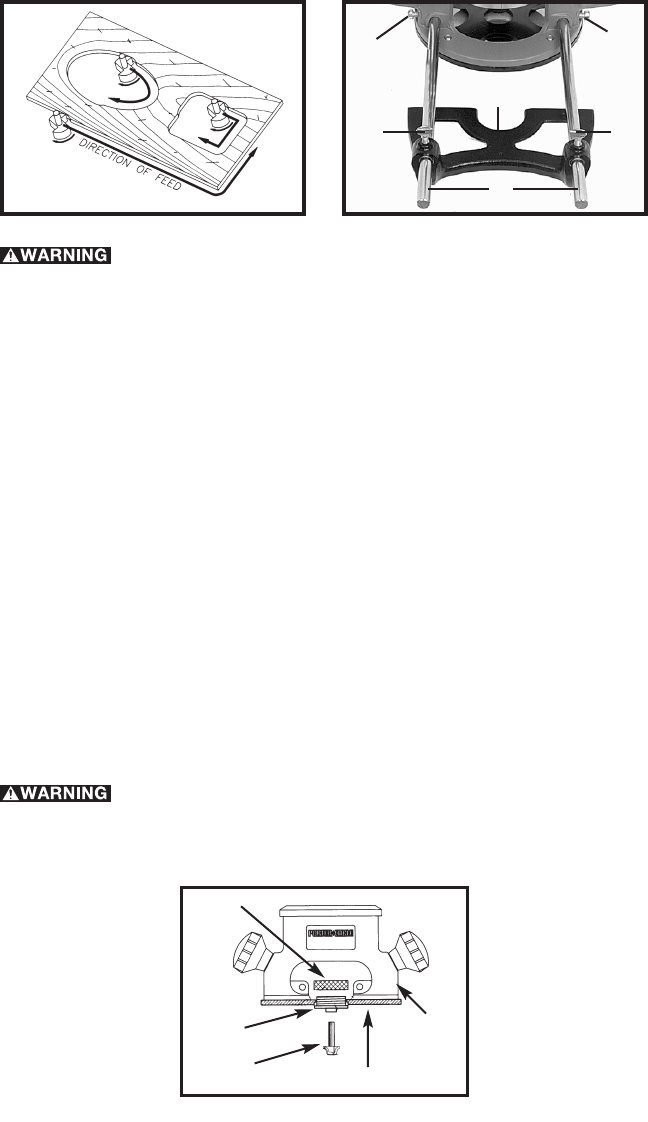
10
Fig. 8 Fig. 9
B
B
D
D
C
A
The speed and depth of cut will depend largely on the workpiece. Keep the
cutting pressure constant but do not crowd the router so the motor speed
slows excessively. On exceptionally hard woods or problem materials, more
than one pass at various settings may be necessary to get the desired depth
of cut.
When making cuts on all four edges of the workpiece, make the first cut on
the end of the piece across the grain. If chipping of wood occurs at the end
of a cut, it will be removed when making the next cut parallel with the grain.
Periodically wipe columns clean with a dry cloth. Clean the rack and gear on
the fixed base with a soft bristle brush. Do not lubricate either the columns or
the rack and gear.
THE EDGE GUIDE
An Edge Guide is available as an accessory to aid in routing operations such
as: straight edge planing, parallel grooving, dado or slotting operations.
To assemble, insert guide rods (A) in holes in base, Fig. 9 and secure with
screws (B). The guide (C) is adjusted on the rods and secured in desired
position with thumb screws (D).
TEMPLET GUIDES
A wide variety of templet guides is available for use in pattern and templet
routing operations. A typical combination bit, templet guide, and locknut are
illustrated in Fig. 10.
DISCONNECT TOOL FROM POWER SOURCE.
To install, insert templet guide in center hole in router base and secure in
place with a locknut. Before connecting router to power source, install the
bit, adjust the depth of cut, and rotate the router chuck by hand to ensure
that bit or collet do not contact the templet guide.
Avoid “Climb-Cutting” (cutting in direction opposite that shown
in Fig. 8). “Climb-Cutting” increases the chance for loss of control resulting in
possible injury. When “Climb-Cutting” is required (backing around a corner),
exercise extreme caution to maintain control of router. Make smaller cuts and
remove minimal material with each pass.
Fig. 10
LOCKNUT
TEMPLET GUIDE
ROUTER BIT
ROUTER
BASE
SUB-BASE

















